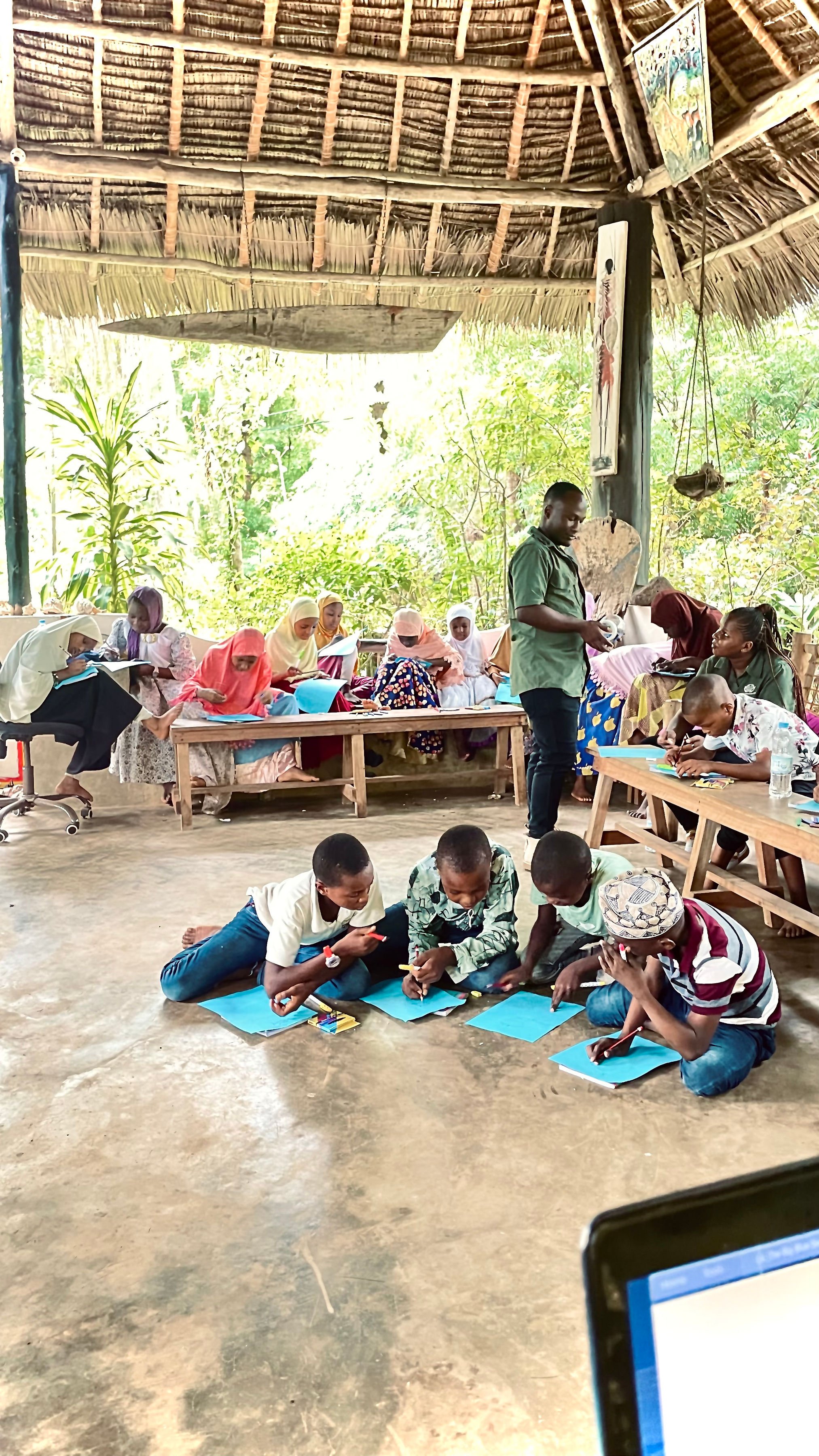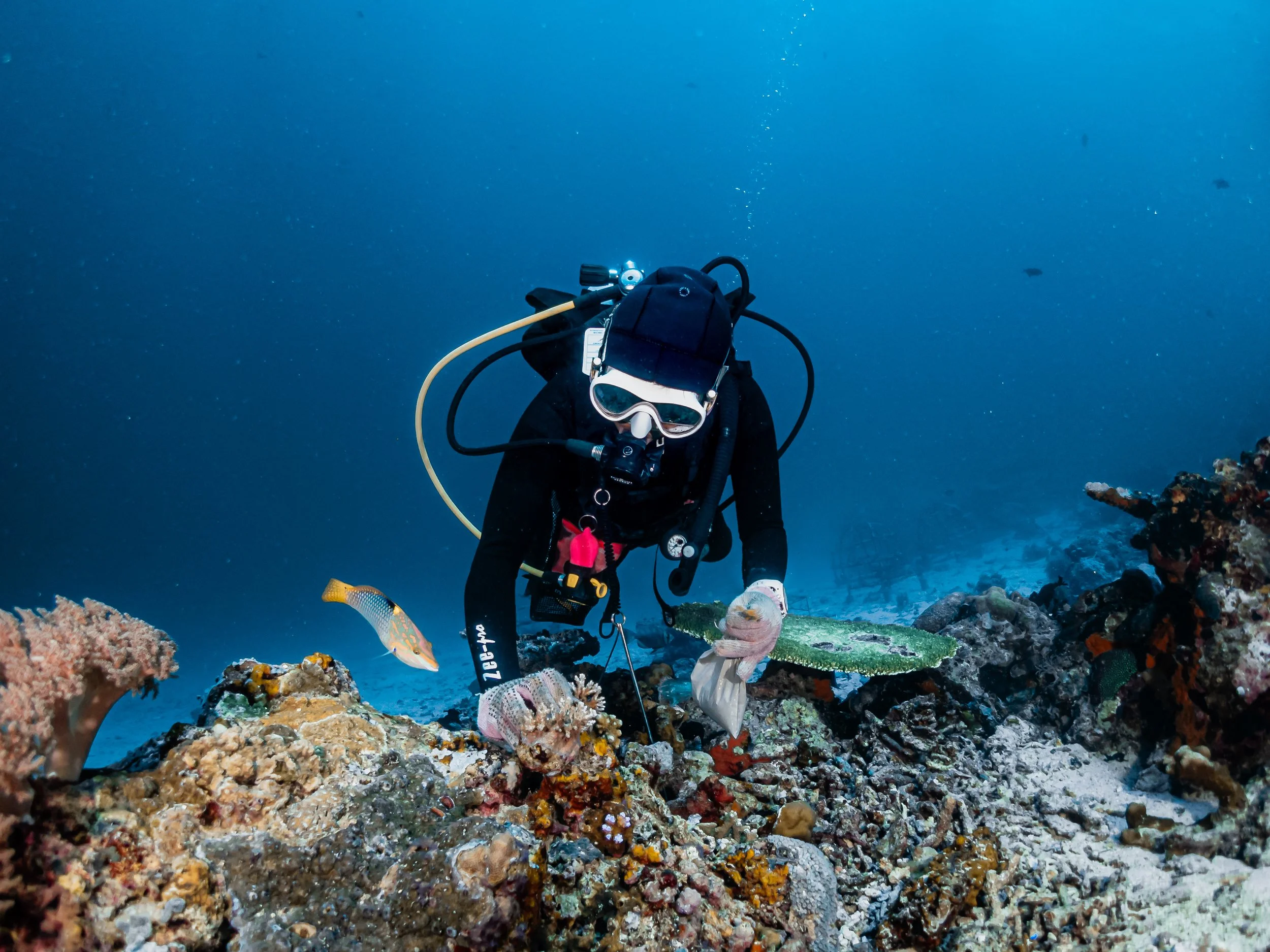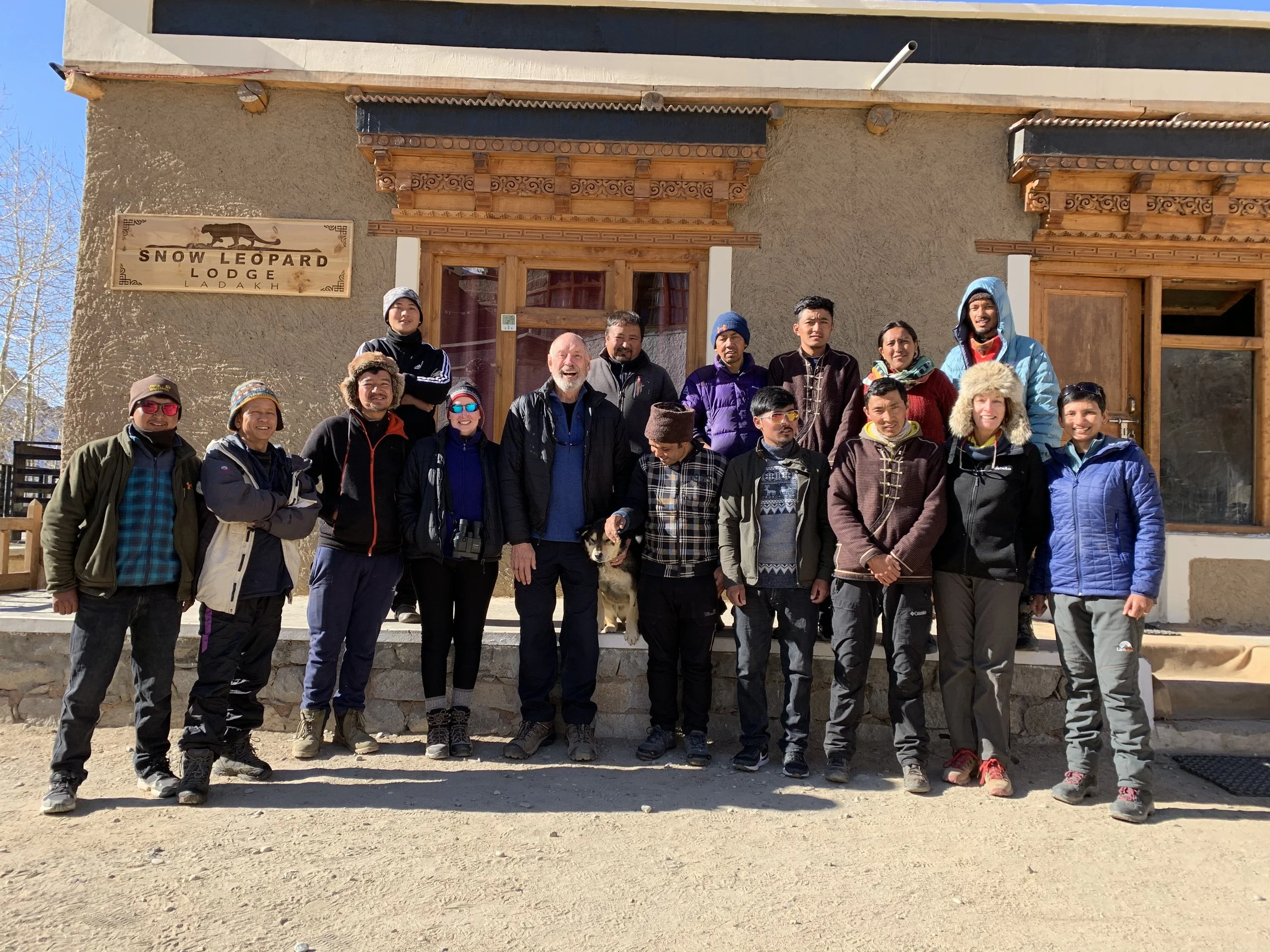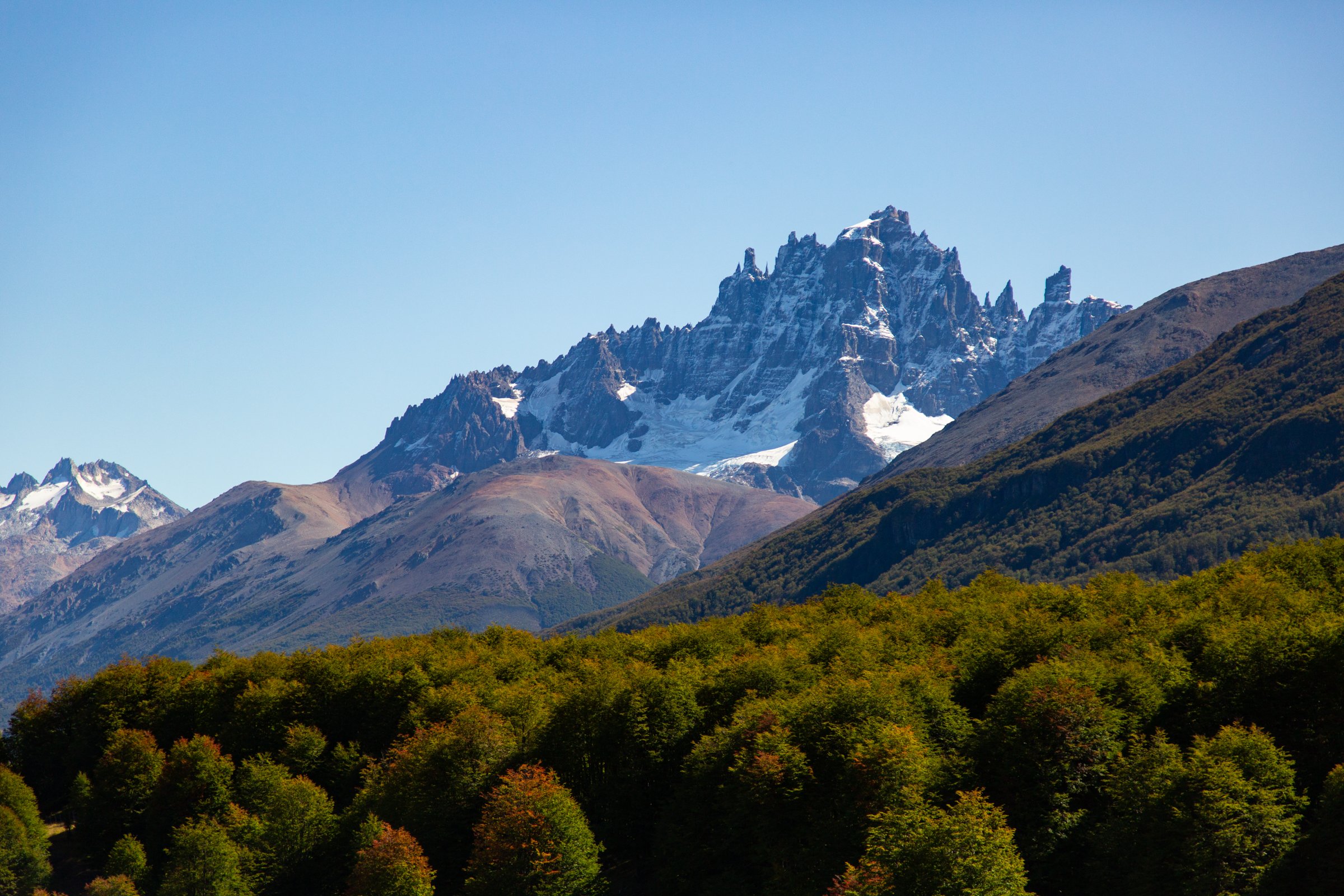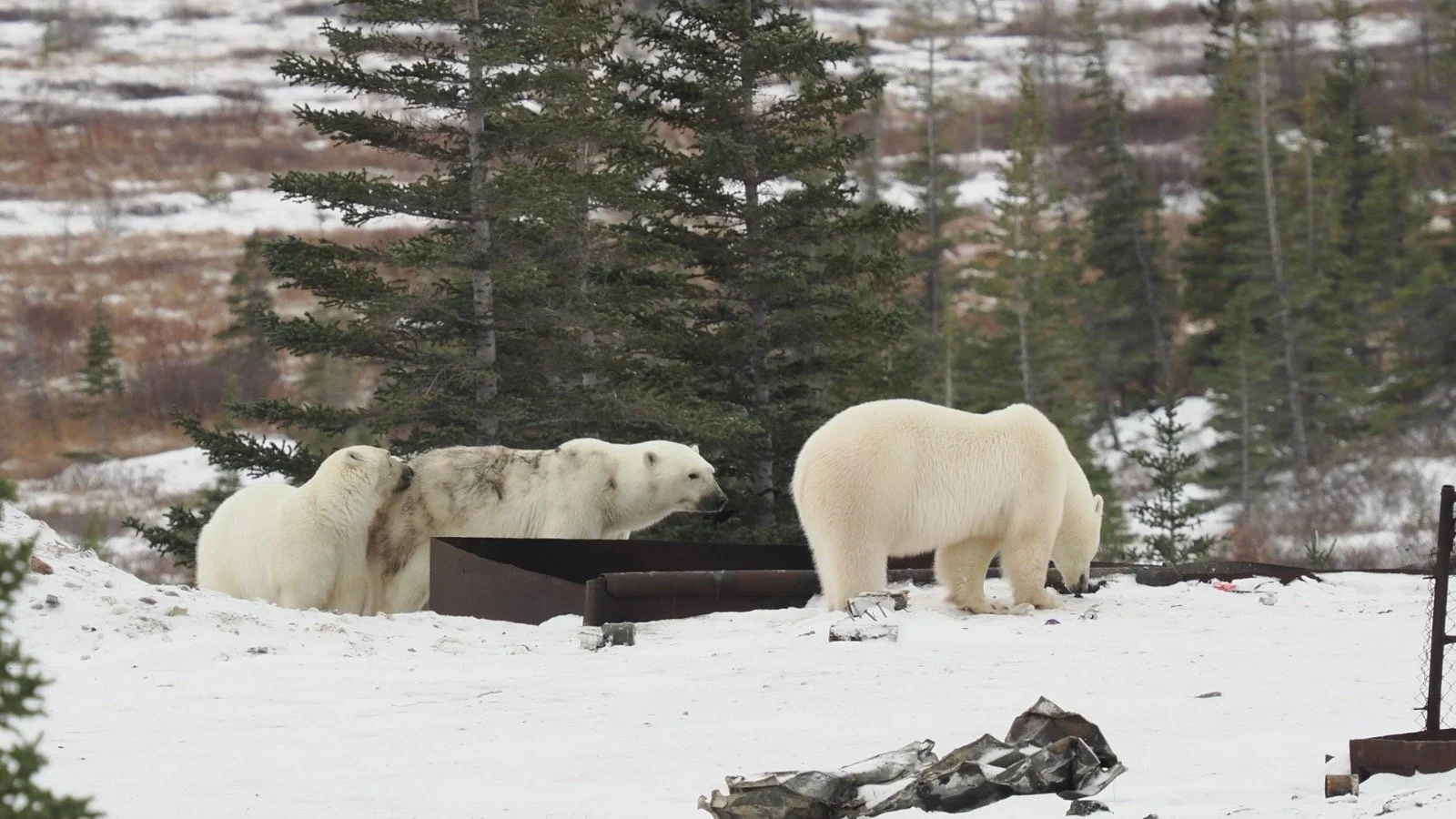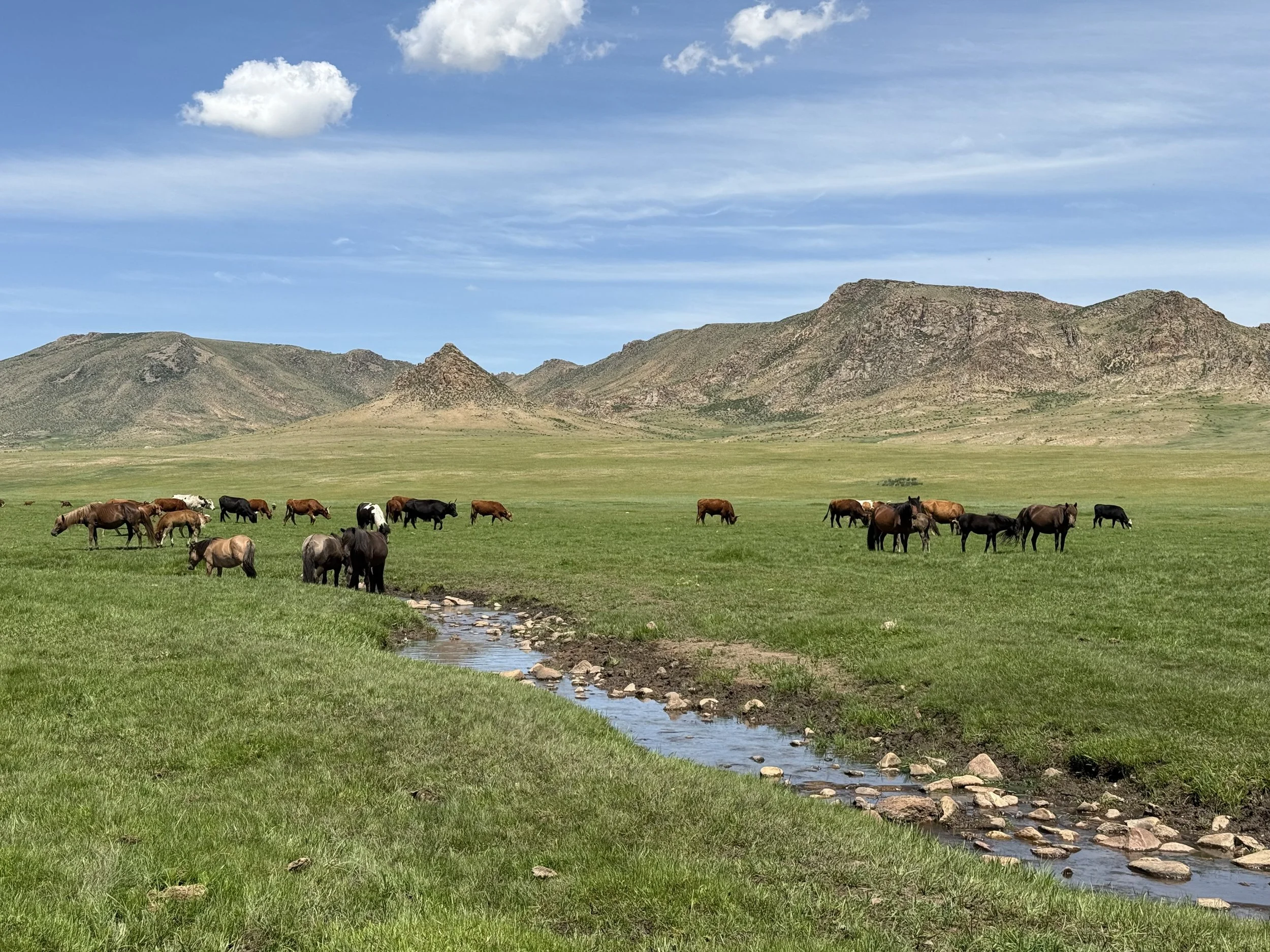2025 Project Voting
We are thrilled to announce that the ballot for the 2025 ATCF Conservation Grant Program is now open! As a valued member of the Adventure Travel Conservation Fund, your organization has the opportunity to cast a crucial vote in deciding which five inspiring projects will each receive a $15,000 grant. All nominated projects have undergone a thorough evaluation by the ATCF staff and Board of Directors, ensuring they meet our rigorous project funding criteria. From the many submissions, 15 outstanding projects have been selected as finalists. Your vote will help determine which of these community-led conservation efforts will receive the support they need to protect vital natural and cultural resources. Cast your vote today and be a part of making a lasting impact!
Voting Period: July 7 - July 23, 2025
KAPAWI ECOLODGE
Location: Pastaza, Ecuador
Org: Asociacion de Servicios Turisticos Kapawi Ecolodge
-
The organization will use the funding to install a solar energy system at Kapawi Ecolodge, train local community members, and expand clean energy access across 10 Indigenous communities in the Amazon, helping reduce fossil fuel use and protect over 50,000 hectares of critical biodiversity.
-
Final success is a fully operational photovoltaic system delivering clean energy to this remote Amazon region, eliminating reliance on fossil fuels, mitigating climate change, and serving as a model for a broader network of clean energy solutions across Achuar Indigenous communities in the lower Pastaza River basin.
-
Board and staff praised this project for its strong alignment with ATCF’s mission: it’s 100% Indigenous-owned, rooted in a long-standing ecotourism model, and delivers clear, tangible conservation outcomes by replacing fossil fuels with solar energy in a pristine Amazon ecosystem. The project stands out for its proven leadership, community resilience focus, and potential as a scalable model—making it a compelling fit across all of ATCF’s funding pillars.
CEDER GUARDIAN PROJECT
Location: Cederberg, South Africa
Org: Sustainable Ceder
-
The Cederberg Guardians project aims to restore the critically endangered Clanwilliam Cedar through targeted conservation efforts—like planting saplings, clearing invasive species, and maintaining trails—while employing a local maintenance team to improve community infrastructure and support the reopening of eco-tourism in five nearby villages. By combining ecological restoration with job creation and tourism readiness, the project builds long-term environmental and economic resilience in the Cederberg region.
-
Sustainable Cedar is a collaborative conservation initiative dedicated to restoring the endangered Clanwilliam cedar while empowering local communities through skills development, education, and eco-tourism, creating a long-term, community-rooted model for ecological restoration across the Cederberg.
-
This project stands out for its strong alignment with ATCF’s mission—combining targeted conservation of the critically endangered Clanwilliam Cedar with local job creation, trail and infrastructure improvements, and community-led eco-tourism. Its clear objectives, measurable outcomes, and potential as a model for conservation-tourism make it a thoughtful and high-impact initiative.
LESSONS IN CONSERVATION
Location: Makangale, Pemba Island
Org: Kwanini Foundation
-
Lessons in Conservation is a hands-on environmental education program for youth in Makangale village, designed to inspire a lasting connection to nature through interactive lessons and excursions tied to local ecosystems and tourism. ATCF funding will support the construction of a permanent open-air classroom and essential course costs, ensuring long-term community impact and environmental stewardship on northern Pemba Island.
-
The final success of this project will be reaching every child aged 10-11 in Makangale to attend the course over the next year, with a dedicated space for the courses becoming an integral part of the community's activities in the years to come.
-
Board and staff see strong potential in this project for its focus on environmental education and youth engagement in a biodiverse region, with direct ties to local ecosystems and indirect links to sustainable tourism. While they appreciated the long-term value of building a permanent open-air classroom, several noted the need for clarity on the program’s sustainability, future funding, and how deeply tourism is integrated into its ongoing impact.
MIGRATORY ROUTE OF WHALE SHARKS
Location: Galapagos, Ecuador
Org: Galapagos Whale Shark Project
-
This project will satellite tag whale sharks in newly discovered aggregation sites in the southern and western Galapagos, combining cutting-edge research with citizen science to map migratory routes across the Eastern Tropical Pacific. By engaging local fishers, guides, and communities in data collection and marine stewardship, the project will generate critical conservation insights while strengthening local investment in protecting this endangered species and the ecotourism economy it supports.
-
Success means a future where whale sharks continue to thrive in the Galapagos and the ETP region, protected by a well-informed, empowered local community that actively participates in their conservation and benefits from a healthier, more resilient marine ecosystem.
-
This project fills critical knowledge gaps in whale shark migration while directly involving local guides, fishers, and tourists through citizen science—strengthening marine stewardship and regional conservation planning. Its strong biodiversity focus, clear tourism ties, and proven community engagement make it a high-impact initiative with both scientific and local benefits.
BEARDED VULTURE CONSERVATION
Location: French Alps, France
Org: Asters Conservatoire d’Espaces Naturels de Haute Savoie
-
This project supports the conservation of the bearded vulture in the French Alps by boosting reproduction, reducing human-related threats, and educating outdoor enthusiasts on how to coexist with this iconic species while preserving access to recreation areas.
-
Final success looks like a stable, self-sustaining population of bearded vultures soaring across healthy, biodiverse European mountain ranges—supported by thriving local economies that are invested in long-term environmental stewardship.
-
The board and staff recommend this project for its clear, science-based strategy to protect the endangered bearded vulture, a keystone species in the Alps, while promoting responsible recreation among outdoor enthusiasts. It offers strong ecosystem impact, supports local tourism through education and outreach, and brings valuable geographic diversity to the project portfolio.
COMMUNITY CORAL KEEPERS
Location: Malaysia, Indonesia
Org: GaiaOne Life
-
This project restores coral reef ecosystems in Borneo and Sulawesi by training local fishers, boat captains, and women in diving, coral planting, and marine conservation, while creating sustainable livelihoods in ecotourism. Over four months, participants will plant at least 3,000 corals and graduate as certified Ocean Gardeners, ready to pursue conservation-based careers and lead future reef restoration efforts.
-
The success of this project will be measured by the six participants who complete the program and either continue working with us or secure jobs in conservation and ecotourism, ensuring long-term community and environmental sustainability.
-
This project combines measurable marine conservation impact with strong local engagement by training fishers, boat captains, and women as certified divers and coral gardeners—creating clear pathways to employment in ecotourism and restoration. Its community-driven model, regional relevance, and potential for long-term sustainability make it a compelling investment in both people and ecosystems.
LADAKHIS LEAD - NATURE GUIDE TRAINING FOR SNOW LEOPARD TOURISM
Location: Ladakh, India
Org: Nature Guides Academy
-
This project will deliver Ladakh’s first professional nature guide training for 20 local participants, equipping them with ecological knowledge, guiding techniques, and storytelling skills to lead meaningful nature-based experiences. ATCF funding will also support the creation of beautifully illustrated, field-ready guide materials—enhancing both conservation education and visitor engagement—while building sustainable livelihoods for local communities through ecotourism.
-
Sow the seeds for making confident, well-informed, well-equipped, local guides community who can work together with each other and with people from outside (eg travel operators and tour leaders) to deliver excellent guest experience as well as have the courage to make bold and pro-environment and pro-community decisions on how tourism may grow in the future.
-
This project offers a high-impact, low-cost opportunity to strengthen snow leopard ecotourism in Ladakh by equipping local guides with professional skills, ecological knowledge, and storytelling tools. Its focus on community-led education, inclusion of local voices, and potential to uplift livelihoods in a remote region aligns closely with ATCF’s mission to support conservation through responsible tourism.
INTEGRATING WOMEN INTO THE COBRAS UNIT
Location: Tsholotsho District, Zimbabwe
Org: The Water4Wildlife Trust
-
The Community Rhino Conservation Initiative (CRCI) is a collaborative effort to reintroduce white rhinos to communal lands bordering Zimbabwe’s Hwange National Park, creating a buffer zone that reduces human-wildlife conflict while generating conservation-based livelihoods. Now in Phase 2, the project seeks to expand its network of sanctuaries, engage more communities—especially women—in rhino protection, and scale its model of responsible tourism, ecological restoration, and community empowerment.
-
A viable rhino population returned to the Hwange ecosystem, on communal lands, with the local communities, including women, benefitting in the form of employment, development projects, education and tourism interactions.
-
This project offers a rare combination of proven impact, strong community ownership, and direct tourism benefits, with tourists funding rhino conservation and local livelihoods through viewing fees. As a past ATCF grantee, CRCI has demonstrated effective, measurable progress, and we see this as a long-term investment in an organization advancing critical conservation work through a scalable, community-led model.
BIODIVERSITY AND LOCAL COMMUNITY ENGAGEMENT
Location: Patagonia, Chile
Org: Fundacion Rewilding Chile
-
This project supports rewilding and community-based conservation in Chile’s Cerro Castillo National Park through land acquisition, reforestation, invasive species control, and protection of the endangered Huemul deer. By combining ecological restoration with youth education, local engagement, and sustainable tourism, it aims to build a thriving, resilient landscape that benefits both biodiversity and the people who call Patagonia home.
-
By 2034, Cerro Castillo will be a thriving, well-managed landscape with expanded protected parkland, recovering Huemul populations, restored ecological corridors, and a vibrant local community empowered through nature-based economic opportunities, all contributing to its status as a key destination in the Route of Parks of Patagonia.
-
This project is a strong example of integrated tourism, conservation, and community engagement—protecting the endangered Huemul deer, restoring native ecosystems, and building local stewardship through education and awareness. While the organization is well-established, ATCF’s funding would directly support community engagement and youth programs, making it a targeted investment in rewilding efforts that enhance Cerro Castillo’s identity as a world-class conservation destination.
INDIGENOUS-LED STEWARDSHIP IN GRAND STAIRCASE-ESCALANTE
Location: Grand Staircase-Escalante National Monument, Utah, USA
Org: Grand Canyon Trust
-
We will support efforts by the Tribally-led Grand Staircase-Escalante Inter-Tribal Coalition to solidify governance structures as they influence the management of Grand Staircase-Escalante National Monument, embedding Indigenous leadership into monument governance to protect biodiversity and cultural heritage. To achieve this, we will convene the coalition over the coming months. During the meetings, the group will have the opportunity to work towards an organizational charter and solidify plans for forthcoming changes to land management in the monument.
-
A unified, Tribally-led coalition formalizes its governing structures as it works to co-steward GSENM and shape conservation and climate resilience strategies for years to come, providing durable, long-term, Tribally-centered monument protection.
-
This project advances Indigenous governance and cultural stewardship in the protection of Grand Staircase–Escalante National Monument—an iconic, tourism-heavy landscape—by elevating Tribal voices in federal land management and advocating against extractive threats. It offers strong alignment with ATCF’s values around equity, conservation, and Indigenous leadership, and presents a compelling opportunity for visibility and storytelling within a high-profile campaign.
SEABED LITTER EXPEDITIONS
Location: Balearic Isalnds, Spain
Org: TrueWorld Organization
-
Seabed Litter Expeditions connects tourism, science, and community action by using a zero-emissions research vessel to map underwater debris in the Balearic Islands’ high-traffic coastal zones. Through participatory outings with tourists, students, and local stakeholders, the project generates real-time data to inform marine conservation, raise awareness, and build a replicable model for sustainable, science-based tourism.
-
Final success means that local communities, tourism operators, and marine users in the Balearic Islands are actively involved in mapping and protecting the seabed—using shared data, low-impact tools, and a model that can be replicated across the Mediterranean.
-
This project stands out for its innovative, tech-forward approach to regenerative tourism—engaging visitors, locals, and tourism operators in hands-on marine science to map and address underwater litter in the Balearic Islands. With strong alignment to EU conservation goals and broad stakeholder participation, it offers a replicable model of citizen science that turns tourism into a powerful tool for coastal stewardship.
POLAR BEAR SAFE COMMUNITIES
Location: Manitoba, Canada
Org: Polar Bears International
-
This project supports polar bear conservation and community safety in Churchill, Manitoba by promoting bear safety education for visitors and implementing urgent waste management solutions. Through broad distribution of safety videos and the installation of an electric fence around the town’s open landfill, the project aims to reduce human-bear conflict and protect both wildlife and people in this high-profile Arctic tourism destination.
-
The final success of this project would result in all tourists who arrive in Churchill being well versed in polar bear safety messaging, enjoying a beautiful experience viewing polar bears along the coastal areas, rather than in town, and returning home inspired to take action to address climate change.
-
This project tackles the urgent issue of human–polar bear conflict in one of the world’s most iconic wildlife tourism destinations by combining practical waste management solutions with targeted visitor education. With clear, tangible outcomes—like fencing the open landfill and promoting safety messaging—it offers a replicable model for coexistence in high-impact tourism areas facing climate-driven wildlife challenges.
ZAMBIAN SNARE REMOVAL AND COEXISTENCE
Location: Mfuwe, Zambia
Org: Dazzle Africa
-
This project protects Zambia’s wildlife and supports community resilience through a three-part strategy: removing poaching snares, deploying local field officers, and expanding a chilli patroller program to reduce human-wildlife conflict. By combining conservation action with income-generating opportunities and education, the initiative fosters coexistence between communities and keystone species like elephants, while safeguarding ecosystems under increasing climate pressure.
-
Success in this project looks like successful removal of poaching tools and effective, community-centered responses to wildlife conflicts that lead to decreases in wildlife death and negative impacts on community members.
-
This project offers a strong, community-driven approach to conservation in South Luangwa—one of Africa’s premier wildlife tourism destinations—through snare removal, human-wildlife conflict mitigation, and local engagement. With a proven track record and measurable outcomes, it aligns with ATCF’s values by protecting endangered species while creating economic opportunities that lay the foundation for sustainable, conservation-based tourism growth.
COMMUNITY TOURISM SUPPORTING SUSTAINABLE ANIMAL HUSBANDRY
Location: Khentii, Mongolia
Org: Mongolia Quest
-
This project aims to train members of the Sharyn Gol cooperative in Mongolia to operate community-based bed and breakfast services using their own gers, local knowledge, and family labor. By creating sustainable tourism opportunities near protected areas, the initiative helps diversify local incomes, reduce overgrazing and unregulated camping, and support conservation efforts through greater community engagement and cooperation with park authorities.
-
Every nomadic family being able to host a small group of tourists and earning enough income to supplement their annual income, while contributing towards protection of the park resources.
-
This project presents a strong, scalable model for community-based tourism by training local families to operate traditional ger-based B&Bs near Mongolia’s new protected areas. It supports habitat stewardship, reduces pressure from overgrazing, and lays the groundwork for sustainable ecotourism in a remote, high-potential region—backed by a trusted local partner with deep expertise.
SEA TURTLE CONSERVATION AND SUSTAINABLE TOURISM
Location: Veraguas, Panama
Org: Fundación Agua y Tierr
-
This project conserves four threatened sea turtle species along Panama’s Pacific coast through community-led nest protection, eco-tourism development, and environmental education. By empowering local women and youth and improving tourism infrastructure tied to the Eco-Ruta Tortuga, it creates a replicable model for regenerative tourism that benefits both biodiversity and community livelihoods.
-
Final success means empowered coastal communities sustainably managing their natural and cultural resources, with thriving local economies rooted in conservation, climate resilience, and inclusive ecotourism.
-
This project clearly aligns with ATCF’s mission by integrating biodiversity conservation, sustainable tourism, and community empowerment—protecting endangered sea turtles while creating income opportunities for women and youth in rural Panama. Though the proposal is broad, it offers strong potential for measurable impact at a low cost and exemplifies how tourism can directly support both ecological and social resilience.




